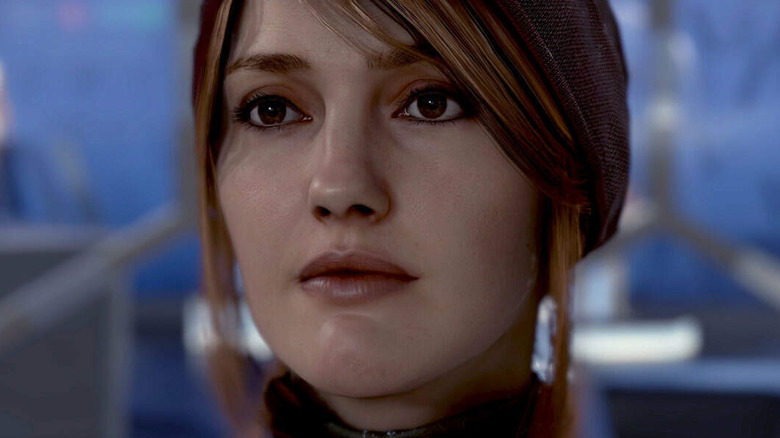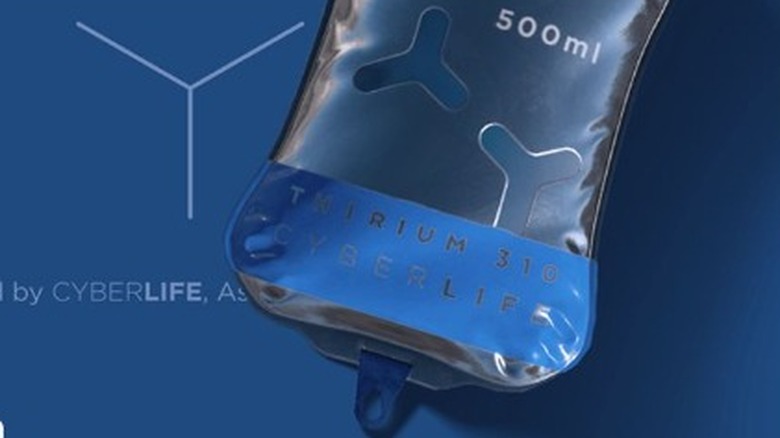Why Do Androids Have Blue Blood In Detroit: Become Human?
Cinematic adventure games like "Detroit: Become Human" can be a bit of a risk for game studios. Dialogue-heavy story-centric games like these aren't relying on big action set pieces, but rather the storyline and character development. If the story is weak, it can hurt the whole experience. This is especially true if the story is under 12 hours long, as is the case with "Detroit: Become Human." Luckily for gamers, "Detroit: Become Human" has a very immersive narrative, which also serves as an interesting commentary on artificial intelligence, free will, and civil rights. And while some of its character arcs have caused fan backlash, gamers have largely responded positively to the game, which has become Quantic Dream's best-selling title (per GameSpot).
As is the case with any story that becomes this popular, online speculation over various plot lines, backstories, and small details in the "Become Human" story has run rampant. One such question is in regards to the game's android characters and how they work.
In "Detroit: Become Human," these androids have blue blood. If you're wondering why that is the case, a collectable magazine item found in the game's "Public Enemy" chapter explains the blue blood in great detail.
What is the blue blood?
The first page of an issue of "Tech Addict" (the in-game magazine) claims that the so-called "blue blood" is actually a chemical compound known as Thirium 310. This compound is responsible for transporting energy and information across the androids' bodies. In the world of "Detroit: Become Human," the bodies of androids are built much like their human-counterparts. That is to say, androids have synthetic organs vital to their health and function. According to page two of the "Tech Addict" article, Thirium 310 powers those organs.
If an android loses too much of this blue blood, they will shut down in much the same way that a human will die if he or she loses too much human blood. CyberLife, the company responsible for creating the androids of "Detroit: Become Human," did this intentionally. One of the company's key selling points in the game is centered on how human the robots seem. As players find out in the main story, however, this led CyberLife to accidentally make the androids a little more "human" than the company likely first intended.


